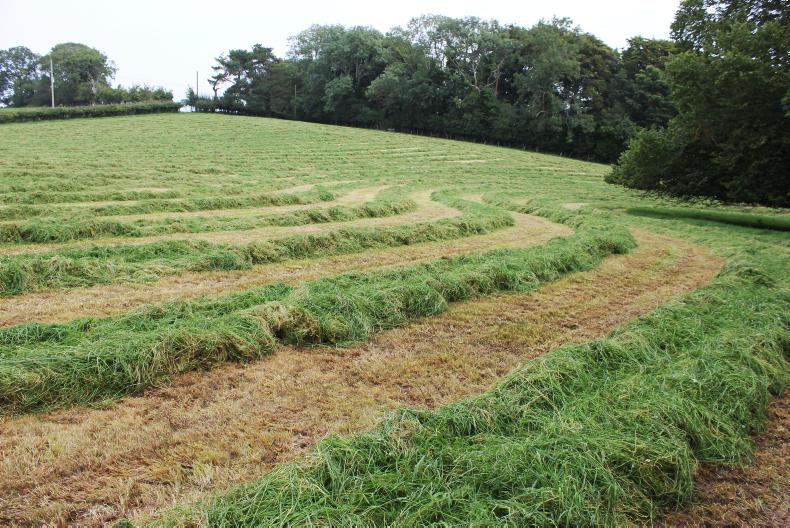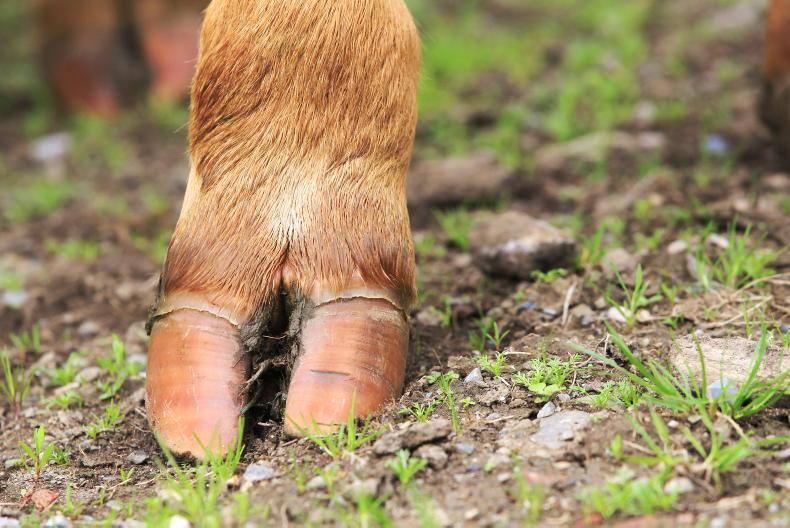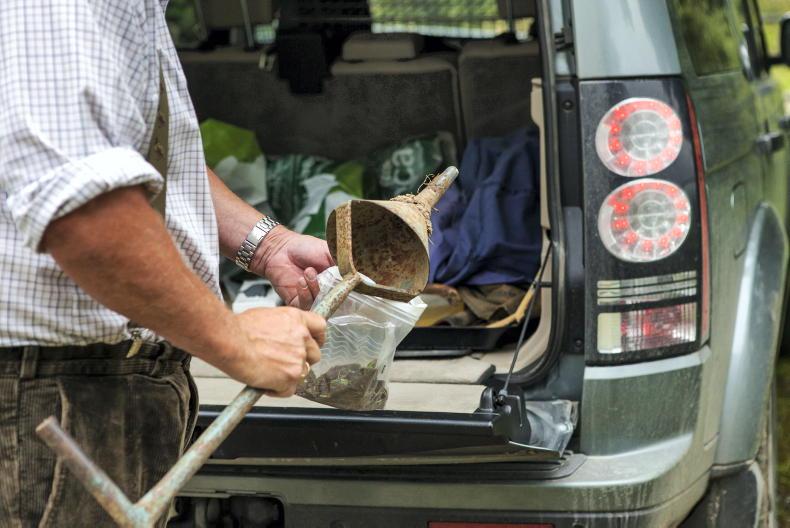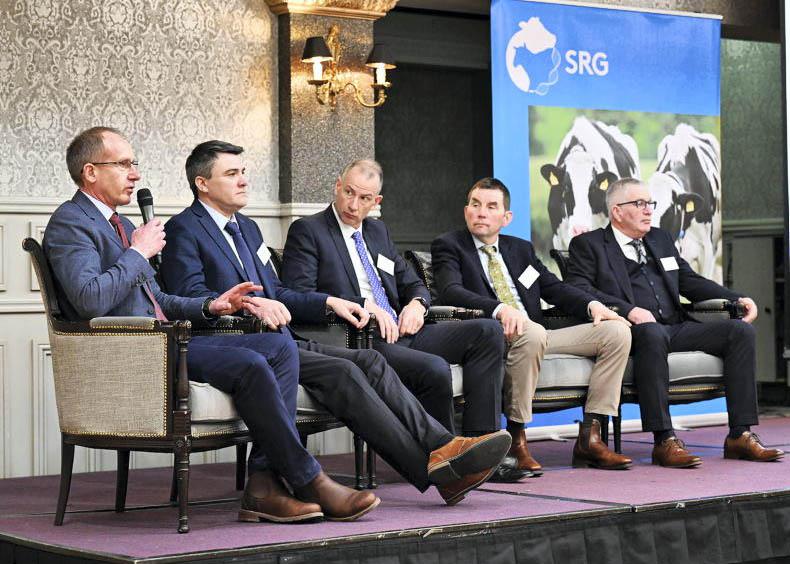A Co Down farm business that decided to challenge DAERA on a decision to exclude it from the Basic Payment Scheme (BPS) in 2015 has won its case and had payments reimbursed and costs awarded, the Irish Farmers Journal understands.
The case involved the late Michael Calvert from Barnwell Farms in Greyabbey, who submitted a Single Application Form (SAF) in 2015 to establish entitlements on 72.9ha of land.
Operating an arable and beef farming operation, Mr Calvert was well known in the area, having been named the UK’s most wildlife-friendly farmer in the annual Nature of Farming Awards in 2009.
However, in 2013 he suffered a back injury and was forced to sell his cattle, so by 2015 was mainly growing grass for sale (by cutting or grazing) to other farmers.
He was initially excluded from the scheme after DAERA queried whether he met active farmer requirements, and asked him to provide more evidence. In 2016, the applicant was interviewed by Department officials, and while they accepted that he was undertaking some farming activity, they concluded it was not evident that he had decision-making powers on all of the land claimed on the 2015 SAF.
Mr Calvert applied for a Stage 1 review of that decision in April 2016, and supplied further information and evidence later that year. However, the Stage 1 review panel concluded that the decision should not be changed, citing concerns around how grass yields had been estimated when sold to local farmers.
It took until August 2018 for the case to get to a Stage 2 review by an independent panel, and by that stage Mr Calvert had passed away, and was being represented by his nephew, Robert Calvert, who had also taken on the running of the farm.
This independent panel hearing was attended by Robert Calvert, along with UFU technical officer Gillian Cheatley, who had prepared and lodged a report to the panel in support of the applicant’s case.
The independent panel found in favour of the applicant, concluding that there was sufficient evidence that Barnwell Farms is an active farm.
However, the final decision still rests with DAERA’s Head of Paying Agency, and as has happened in other cases that have been taken to Stage 2 review, the Department decided not to accept the independent panel’s recommendation.
Costly battle
At that stage, most farmers decide to step away, as the only remaining option is a potentially costly legal battle by way of a judicial review.
However, Barnwell Farms opted to pursue the case.
Delivering her judgement, High Court Judge Mrs Justice Keegan found in favour of the applicant, directing the Department to reconsider its decision to exclude the farm business from the BPS scheme.
In her consideration, Justice Keegan made clear that the onus is on a claimant to provide the necessary evidence to DAERA to prove that they are actively farming, and ultimately the Department does have a large measure of discretion when determining these issues.
But crucially, she highlighted the decision by DAERA to go against the recommendation of the independent panel, which had been informed by the technical expertise provided by Ms Cheatley. In particular, Justice Keegan said that there was an obligation on DAERA to explain why the analysis of the independent panel was not followed.
It is understood that DAERA has now made payments covering the scheme years 2015 to 2019, worth over £80,000, and also agreed to cover a proportion of the applicant’s court costs.
Read more
CAFRE brought in to assess active farmers
DARD rejects 810 non-active farmers
A Co Down farm business that decided to challenge DAERA on a decision to exclude it from the Basic Payment Scheme (BPS) in 2015 has won its case and had payments reimbursed and costs awarded, the Irish Farmers Journal understands.
The case involved the late Michael Calvert from Barnwell Farms in Greyabbey, who submitted a Single Application Form (SAF) in 2015 to establish entitlements on 72.9ha of land.
Operating an arable and beef farming operation, Mr Calvert was well known in the area, having been named the UK’s most wildlife-friendly farmer in the annual Nature of Farming Awards in 2009.
However, in 2013 he suffered a back injury and was forced to sell his cattle, so by 2015 was mainly growing grass for sale (by cutting or grazing) to other farmers.
He was initially excluded from the scheme after DAERA queried whether he met active farmer requirements, and asked him to provide more evidence. In 2016, the applicant was interviewed by Department officials, and while they accepted that he was undertaking some farming activity, they concluded it was not evident that he had decision-making powers on all of the land claimed on the 2015 SAF.
Mr Calvert applied for a Stage 1 review of that decision in April 2016, and supplied further information and evidence later that year. However, the Stage 1 review panel concluded that the decision should not be changed, citing concerns around how grass yields had been estimated when sold to local farmers.
It took until August 2018 for the case to get to a Stage 2 review by an independent panel, and by that stage Mr Calvert had passed away, and was being represented by his nephew, Robert Calvert, who had also taken on the running of the farm.
This independent panel hearing was attended by Robert Calvert, along with UFU technical officer Gillian Cheatley, who had prepared and lodged a report to the panel in support of the applicant’s case.
The independent panel found in favour of the applicant, concluding that there was sufficient evidence that Barnwell Farms is an active farm.
However, the final decision still rests with DAERA’s Head of Paying Agency, and as has happened in other cases that have been taken to Stage 2 review, the Department decided not to accept the independent panel’s recommendation.
Costly battle
At that stage, most farmers decide to step away, as the only remaining option is a potentially costly legal battle by way of a judicial review.
However, Barnwell Farms opted to pursue the case.
Delivering her judgement, High Court Judge Mrs Justice Keegan found in favour of the applicant, directing the Department to reconsider its decision to exclude the farm business from the BPS scheme.
In her consideration, Justice Keegan made clear that the onus is on a claimant to provide the necessary evidence to DAERA to prove that they are actively farming, and ultimately the Department does have a large measure of discretion when determining these issues.
But crucially, she highlighted the decision by DAERA to go against the recommendation of the independent panel, which had been informed by the technical expertise provided by Ms Cheatley. In particular, Justice Keegan said that there was an obligation on DAERA to explain why the analysis of the independent panel was not followed.
It is understood that DAERA has now made payments covering the scheme years 2015 to 2019, worth over £80,000, and also agreed to cover a proportion of the applicant’s court costs.
Read more
CAFRE brought in to assess active farmers
DARD rejects 810 non-active farmers









SHARING OPTIONS